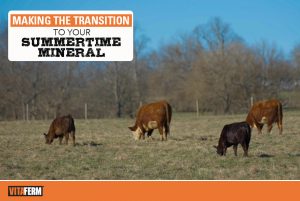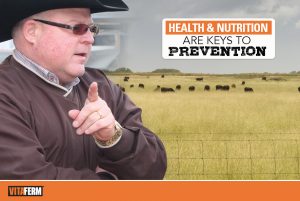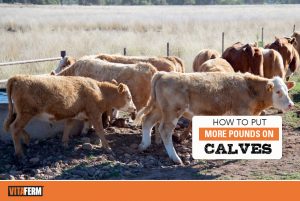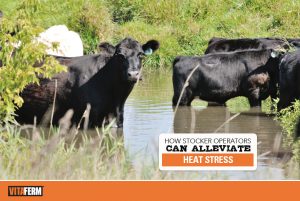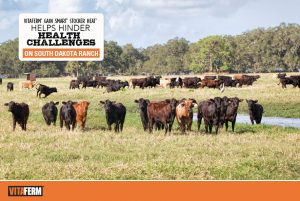For many spring-calving cow herds across the country, breeding season is just beginning. This means you will want to give your cows every advantage you can to get them bred and keep them bred, especially through the heat of the summer. Progressive cattle producers across the country have learned to rely on the VitaFerm® Concept•Aid® […]
Tag: Heat Stress
Health and Nutrition are Keys to Prevention
An ounce of prevention is worth a pound of cure. And for one progressive cattle producer, doing things the right way the first time is worth keeping his cow herd healthy and performing. The Boyd family has been raising registered cattle in north central Kentucky for more than a century. Charlie Boyd II along with […]
How to Put More Pounds on Calves
Changing just one management decision can increase gain, and gain increases profitability. Just ask Ray Fussell. The Tennessee Ridge, Tenn., stockman has been buying stocker calves and backgrounding them for 20-plus years. And after he shipped his 2017 calves, his cattle buyer suggested he look into changing his mineral program. So he did just that. […]
How Stocker Operators Can Alleviate Heat Stress
Summer heat takes its toll on your entire herd, with a decrease in performance, the potential for increased sickness and economic losses. But for stocker calves, in their prime growth period, the added stress from heat can magnify those challenges even more so. The degree of heat stress is typically measured by a temperature-humidity index […]
VitaFerm Gain Smart Stocker HEAT Helps Hinder Health Challenges on South Dakota Ranch
In the spring of 2017, Melynda Gress of Y-Cross Inc., was looking for a supplement alternative for her backgrounding operation. Located in the northwest corner of South Dakota where she and her family run 800 to 1,000 yearlings each spring and summer, she knew she needed a more natural mineral option for her calves. Two […]
VitaFerm HEAT Now Available in 3 Formulas
Heat stress impacts the performance of cattle with millions of dollars of annual economic losses. Animal responses to heat stress include reduced dry matter intake, decreased average daily gain, decreased milk yield, and decreased fertility and poor reproduction. Many producers also don’t realize that heat stress can begin a temperatures as low as 70 degrees. […]
